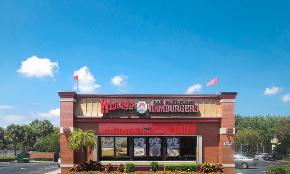LOS ANGELES—More than just making a spread, if the value of a property isn’t there, REITs aren’t interested, said participants in the “REIT Power Panel” at RealShare National Investment & Finance here last week. In a yield-focused market, they said, remember to keep your eye on the real estate ball.
What that real estate consists of varies according to each panelist. When moderator Wayne D’Amico, CCIM, president/chairman of CCIM Institute, asked panelists which property sector was the hottest, Brian Jones, CFO of American Realty Capital LLC, answered that the global economy—particularly Western Europe—healthcare and grocery-anchored shopping centers were the areas his firm watches. “Healthcare has great demographics since people are living longer. Hospitality is another area we watch.”
Andrew White, managing director, western region, for Gladstone Commercial, watches the industrial sector. “We’re selling industrial at a 4.5% cap, where the buyer is a pension fund paying all cash. There’s a 25% to 30% hop.”
Meanwhile, April Little, VP investments for Spirit Realty Capital, said retail—quick-serve restaurants, in particular—are her firm’s focus. “There’s so much capital in the market that salebacks are much lower than credit runs. There’s so much capital chasing the same deal that cap rates are compressed on each deal.” She added that to find yield, investors should focus on off-market medical-office buildings and tertiary markets, although, “It seems like every asset class is very expensive.”
D’Amico asked the panelists how they tie a real estate decision to such a volatile concern. Jones answered, “It’s hard because you’re underwriting the real estate, the operator and the risks. The discipline required is hard.”
Little said that restaurants are very volatile and location driven, whereas office is not, and Jones said that leases are getting shorter, so it’s important to consider the whole picture. “Being right more often than you’re wrong is a matter of using resources and not just focusing on the cost of capital.”
White emphasized that the value of the real estate needs to be present before committing to a deal, and Jones added, “Today’s underwriting is very much a real estate game. People are willing to pay more for credit, and the market should place more value on that credit. There’s value to the certainty of the close even in a frothy market.”
Some of those frothy or overheated markets the panel listed include San Francisco, Mountain View, Palo Alto and Downtown Seattle’s South Lake Union district. But Jones said, “There’s nowhere we won’t go, but there are assets we won’t own.”

















 Copyright © 2024 ALM Global, LLC. All Rights Reserved.
Copyright © 2024 ALM Global, LLC. All Rights Reserved.